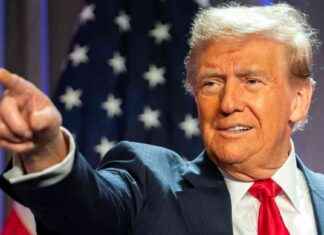Sri Lanka, where Ranil Wickremesinghe was elected president by parliament on Wednesday, has been rocked by protests and violent clashes for more than three months.
• Read also: Sri Lanka: Ranil Wickremesinghe elected president by Parliament
• To read also: Sri Lanka: demonstrators invade the offices of the prime minister after the flight of the president
• To read also: Sri Lanka: the demonstrators intend to occupy the palace until the departure of the president
This South Asian island of 22 million inhabitants is experiencing its worst economic crisis since its independence in 1948. The Islamist attacks of Easter 2019, then the COVID-19 pandemic have dried up the reserves of foreign currencies provided by tourism and the Diaspora.
night of violence
On the night of March 31 to April 1, hundreds of demonstrators attempted to storm President Gotabaya Rajapaksa’s residence in Colombo and demanded his resignation.
On April 1, the demonstrations spread. The president declares a state of emergency.
The curfew introduced the next day is defied by hundreds of demonstrators. The army is deployed.
Cascading resignations
On the 3rd, the government resigns with the exception of the president and his older brother, Prime Minister Mahinda Rajapaksa.
On the 4th, the curfew is lifted. The opposition refuses to form a government of national unity.
Resignation of the Governor of the Central Bank.
The president loses his majority
On the 5th, President Rajapaksa lost his majority in Parliament, after several defections within the Podjana Party (SLPP) coalition.
The state of emergency is lifted.
Record demonstration in Colombo
On the 9th, tens of thousands of people, joined by employers, demonstrated in Colombo against the president, at the call of social networks and the Anglican and Catholic Churches.
Thousands of protesters camp in front of the presidential office.
Default of payment
On the 12th, Sri Lanka defaulted on its external debt of 51 billion dollars.
On the 18th, the president announced a new government, dismissing two of his brothers and a nephew, but his brother remained prime minister.
General strikes
On the 19th, the police killed a man, a first since the beginning of the protests.
On April 28, then on May 6, general strikes paralyze the country.
The state of emergency is reimposed.
Resignation of Prime Minister
On May 9, the prime minister resigns after attacks by his supporters on anti-government protesters left nine dead and more than 225 injured, according to police.
A general curfew is decreed.
Evacuated by the army
On the 10th, the army exfiltrated the former prime minister from his residence in Colombo, threatened by demonstrators.
The Ministry of Defense gives the “order to shoot on sight”.
unity government
On the 12th, the president appoints Ranil Wickremesinghe prime minister.
The curfew was lifted on the 15th.
The 31st, significant tax increases.
Threat of famine
On June 3, the government, which fears a famine, asks for help from the UN. The United Nations Food and Agriculture Organization (FAO) promises an emergency plan.
Soldiers open fire
On the 18th, soldiers opened fire on a riot in a dry service station (7 wounded).
The 27th, fuel sales are restricted to essential sectors such as health.
Inflation reached a record 54.6% in June.
Escape from the palace
On July 9, President Rajapaksa fled his invaded palace.
Protesters set fire to the prime minister’s residence.
The president in exile
On the 13th, the president flew to the Maldives aboard a military plane with his wife.
Thousands of demonstrators demand his resignation and that of the head of government.
Prime Minister Ranil Wickremesinghe becomes interim president. Its offices are invaded by demonstrators.
Resignation of the president
On the 14th, the president resigns by email from Singapore where he has just arrived.
Protesters withdraw from public buildings.
On the 18th, Ranil Wickremesinghe, who has the support of the Rajapaksa clan party, renews the state of emergency.
Wickremesinghe elected president
On the 20th, Ranil Wickremesinghe was elected president with an overwhelming majority by Parliament.
“Our divisions are now over”, assures after his appointment this 73-year-old man, already six times Prime Minister.







